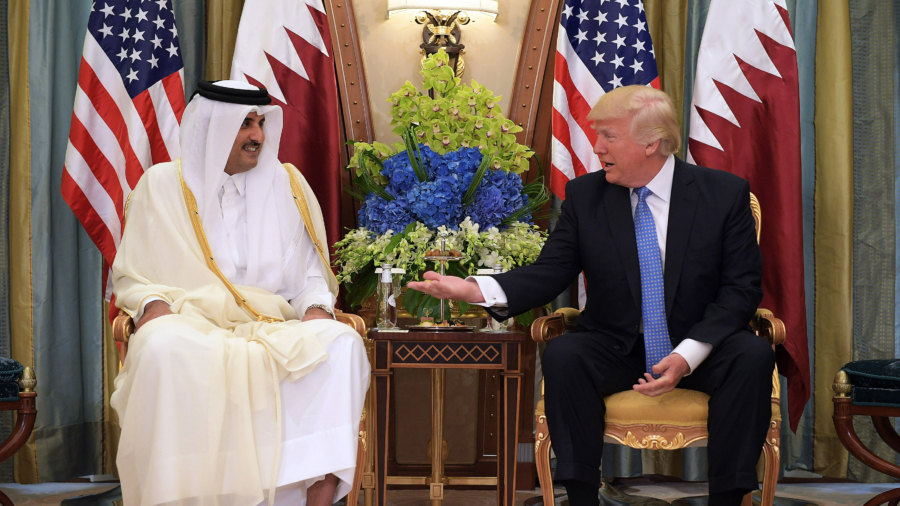RIYADH, Saudi Arabia (AP)—President Donald Trump will use the nation that is home to Islam’s holiest site as a backdrop to call for Muslim unity in the fight against terrorism Sunday, as he works to build relationships with Arab leaders.
On the second day of his first trip abroad, Trump showed that he’d made progress with an agreement with Gulf Arab states on countering terrorist funding.
Under the memorandum of understanding with the Gulf Cooperation Council announced in Saudi Arabia, participants are pledging to prosecute the financing of terrorism, including individuals. The White House did not immediately release the document. But White House adviser Dina Powell said she hoped the deal with Bahrain, Kuwait, Oman, Qatar, Saudi Arabia and the United Arab Emirates would be the “farthest reaching commitment to not finance terrorist organizations” and would lead to prosecutions.
Trump’s Sunday speech, the centerpiece of his two-day visit to Saudi Arabia, will address the leaders of 50 Muslim-majority countries to cast the challenge of extremism as a “battle between good and evil” and urge Arab leaders to “drive out the terrorists from your places of worship,” according to a draft of the speech obtained by The Associated Press. He also said that in about two weeks he would hold a news conference about the nation’s efforts fighting terror.
The speech comes amid a renewed courtship of the United States’ Arab allies as Trump held individual meetings with leaders of several nations, including Egypt and Qatar, before participating in a roundtable with the Gulf Cooperation Council and joining Saudi King Salman in opening Riyadh’s new anti-terrorism center.
A Sunday meeting with Egyptian President Abdel-Fattah el-Sissi underscored the kinship, with Trump saluting his counterpart on the April release of Egyptian-American charity worker Aya Hijazi, who had been detained in the country for nearly three years.
El-Sissi invited Trump to visit him in Egypt, adding, “You are a unique personality that is capable of doing the impossible.” As the participants laughed, Trump responded: “I agree.”
White House officials have said they consider Trump’s visit, and his keynote address, a counterweight to President Barack Obama’s debut speech to the Muslim world in 2009 in Cairo.
Obama called for understanding and acknowledged some of America’s missteps in the region. That speech was denounced by many Republicans and criticized by a number of the United States’ Middle East allies as being a sort of apology.
Saudi Arabia’s leaders soured on Obama, and King Salman did not greet him at the airport during his final visit to the kingdom. But on Saturday, the 81-year-old king, aided by a cane, walked along the red carpet to meet Trump. He later awarded Trump the Collar of Abdulaziz al Saud, the theocracy’s highest civilian honor.
The president’s stop in Saudi Arabia’s dusty desert capital kicked off his first foreign trip as president, an ambitious, five-stop swing that will take him through the Middle East and into Europe. He’s the only American president to make Saudi Arabia—or any Muslim-majority nation—his first overseas visit.


